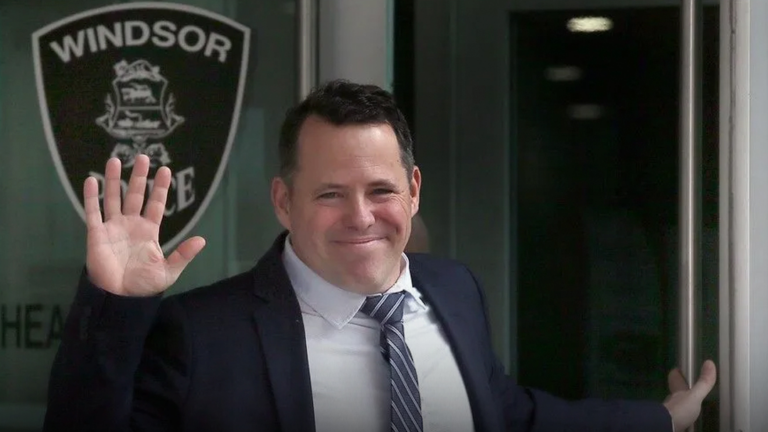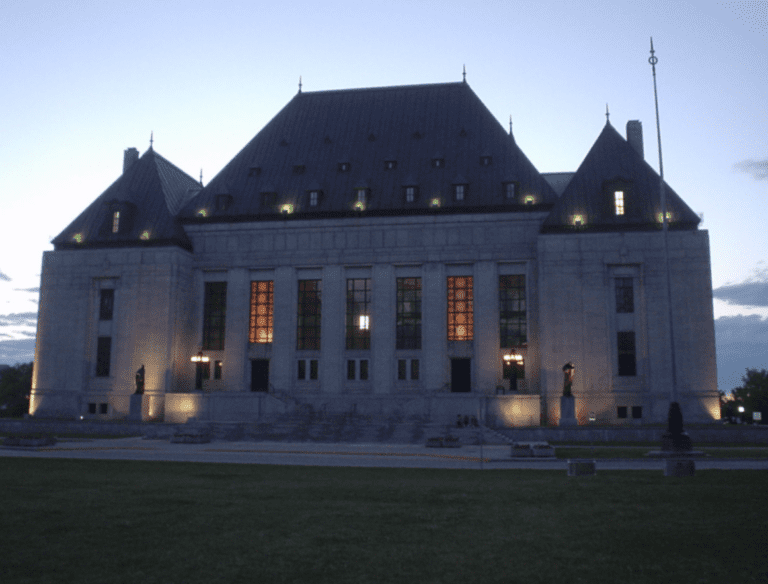By John Carpay
In AB v. CD,the BC Court of Appeal ruled that a female-born minor who wants to become a man can continue taking puberty blockers and testosterone against the objections of the child’s father. I wonder about the conversations that transgender adults may one day have with the judges who authorized them as children to pursue irreversible hormone treatments that caused permanent infertility. It might go something like this.
Transgender Adult (TA): “Remember me?”
Judge (J): “No, sorry.”
TA: “I was a party in a court case you decided 13 years ago, when I was 12 years old. I was born a boy, but became unhappy in my childhood, and I started to feel like a girl trapped in a boy’s body. Some doctors, teachers and psychologists encouraged me to take puberty blockers and estrogen, convincing me I could actually become a girl. I followed their advice, and so did you. I didn’t develop into a man. I missed out on my only opportunity to go through puberty and reach sexual maturity and fertility. I didn’t turn into a girl or woman either, even though I looked like one. I will never be able to get pregnant, and I can never be a father. I’m very unhappy. I often consider suicide.”
J: “Sorry to hear that. Why are you telling me?”
TA: “Because you authorized these hormone treatments, contrary to my father’s objections and contrary to available evidence.”
J: “But, you said you wanted opposite sex hormones.”
TA: “I was 12, getting my information from buzzfeed and from political activist teachers who told me this would solve all my problems. I was too young to consume alcohol, too young to drive a car, too young to smoke a cigarette, too young to vote, too young to join the military, too young to get a tattoo. Yet you declared that I was old enough to inflict permanent, irreversible changes to my body. I can’t go back now.”
J: “I was trying to make you happy. Some doctors were saying it would be easier for you to become a woman if you never went through puberty.”
TA: “I’m still male. Nobody can change that.”
J: “I was trying to be compassionate.”
TA: “If you had let me go through puberty, if you had made me wait till I was 18 before pursuing irreversible transitioning treatments, I would likely have come to accept myself as a boy and as a man.”
J: “I gave you exactly what you wanted as a teenager. In 2020, I made the best possible decision.”
TA: “You ignored the evidence and research of Dr. Kenneth Zucker and Dr. Susan Bradley, who ran the Child Youth and Family Gender Identity Clinic in Toronto from 1981 to 2015. They successfully treated hundreds of children like me, who were struggling with their gender. Back in 2020, people already knew that with proper encouragement and support, the vast majority of kids – more than 80% – became content with their biological gender by the time they reached 18. That evidence was available to you, and to all Canadian judges, from the 1990s and onwards.”
J: “But you admit that some of those kids were still unhappy with their natal gender when they reached the age of 18.”
TA: “Whether you start transitioning at age 18 or 14 or 10, you can’t change your biological sex. You can take drugs and go through surgery to look like the opposite sex, but you will never be the opposite sex. And what about the more than 80% of children who will end up accepting their biological gender?”
J: “I don’t know what to say.”
TA: “You also ignored the 2011 Swedish study of 324 sex-reassigned persons (191 male-to-females, 133 female-to-males), whichproved that the long-term outcome of such treatments resulted in life-long psychological trauma and increased suicide. The suicide rate in these patients was 19 times higher than the general population. Even back then, transgender adults were warning that gender re-assignment surgery had brought them inexorable misery.”
J: “I don’t know what to say.”
TA: “I should have received your help to accept and embrace my masculinity. Yes, I was adamant that I wanted puberty blockers and estrogen to become a girl. But I was a child. Everyone knows teenagers make impulsive decisions as part of growing up. I needed you and my parents to decide what was best for me long-term. Look at me now. It’s your fault.”
Lawyer John Carpay is president of the Justice Centre for Constitutional Freedoms (JCCF.ca) which intervened in the BC Court of Appeal in the case of AB v. CD.









